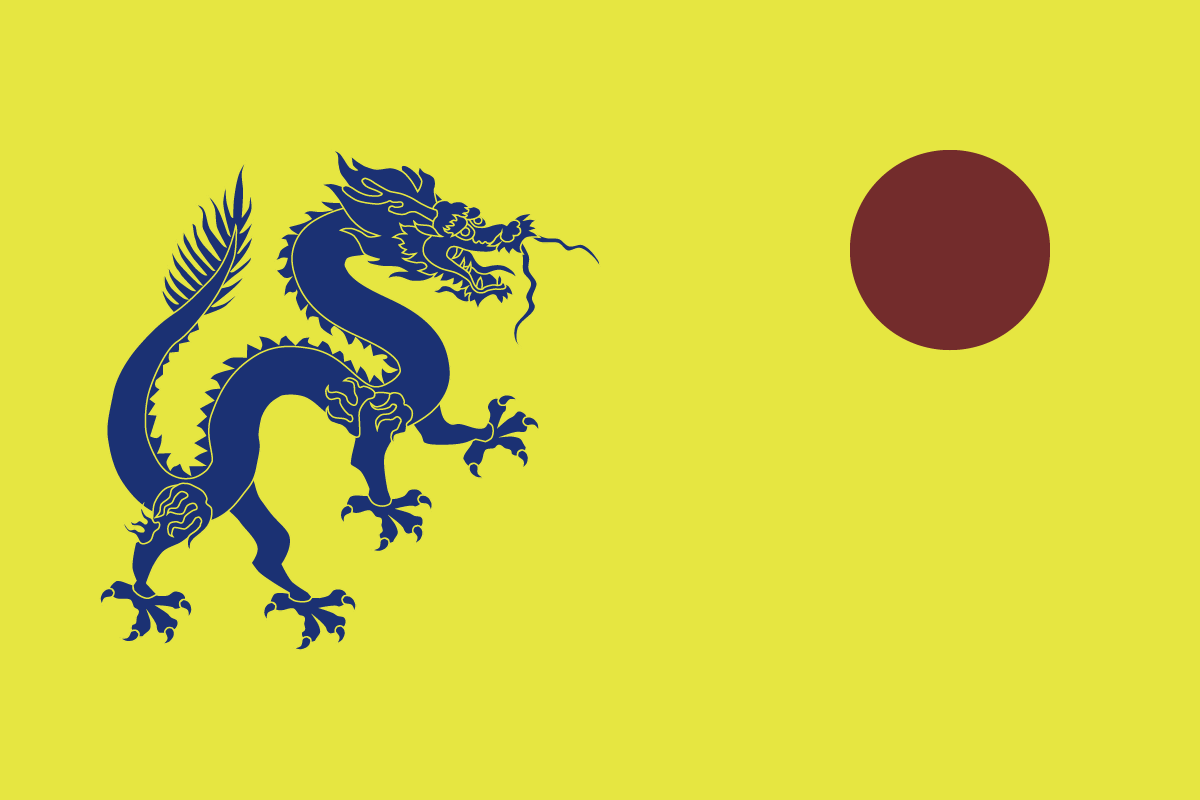So, I've realized that for any kind of thing in computer tech RP to advance with any sort of detail there are a few questions we need to answer.
What operating systems are dominant in Siora?
Basically, "What's our Windows? What's our Mac? What's our Linux?" That sort of question (though Linux technically isn't a OS of it's own, it's a kernel, but we'll get to that in a moment).
For simplicities sake, I'd imagine the most dominant one would be some OS made by a Nylander company. But that doesn't change the situation - what would this OS be called? What company will have made it?
What OS kernels are there in Siora?
The OS kernel is the most fundamental component of a computer operating system - without it the OS literally cannot function. Basically, it's the layer that lets the computer talk to the programs installed on it (I know you techie people are yelling at me saying this is oversimplified, but I'm trying to put it in terms that anyone can understand so shut up).
RL there are two major kernels out there - Windows NT (used for Microsoft Windows) and UNIX (used for Mac, Linux, and many more). So, what do we have in Siora?
How much of those kernels are open-source?
Open-source means the source code (computer code) that makes up the kernel is freely available for anyone to view and use for their own stuff. This has it's upsides and downsides. On the upside, making something open-source is the best way to have it spread quickly. On the other hand, many private corporations LOATHE open-source stuff because by it's very nature open-source means they can't make much money off of it. The opposite of open-source is often called closed-source or proprietary (I'll be using closed-source here).
In real life, Windows NT is (perhaps unsurprisingly) closed-source.
UNIX on the other hand is a weird one. Originally, UNIX was NOT intended to be open-source. But eventually there were derivatives of the original UNIX made that was open-source. Now you see UNIX on most non-Windows operating systems (these OS's are called Unix-like operating systems), in everything from Mac to Linux to FreeBSD to Solaris
If we want things to be like RL, we could have two main kernels - one open-source and one closed-source. On the other hand, we could ditch the RL trope, and have one major kernel that's open-source, or a whole bunch of smaller kernels that vary in licensing (keep in mind though that this would make cross-compatibility a nightmare).
What is the main CPU architecture?
You're probably wondering what the hell I'm talking about. How many of you remember 2006, when Mac announced they were switching from PowerPC to Intel processors? That's basically what that whole thing was about. Apple switched theri Mac OS from CPU's of IBM's PowerPC architecture to Intel's x86 architecture.
RL there are a lot of CPU architectures out there, each with it's own advantages and disadvantages. But there are really only 3 that are relevant today in the world of personal computers.
So, what are the main CPU architectures in Siora called?
What are tha major CPU manufacturers?
You're probably wondering why the fuck this question is here. Well, it's simple really. RL, we only have 2 major distributors for x86 and x86-64 systems. You've probably heard of them, they're Intel and AMD. Ever wondered how we ended up with this practical duopoly over the CPU market?
The answer is simple - licensing and patents. Basically, the rights to the x86 processor architecture lies with Intel. In order to avoid becoming a monopoly in the CPU industry (and thus risk antitrust litigation), they licensed rights to make x86 processors to two other companies. Those companies are AMD and VIA Technologies. VIA Technologies are no longer a big player in the home CPU market, so if you've never heard of them that's why. AMD has evolved to become the only major challenger to Intel, even developing x86-64 (which is why it's also called AMD64), which then shared the rights with Intel and VIA Technologies (for the same reason Intel shared the rights of x86).
No other company has been licensed to make x86 and x86-64 processors, which is why we're currently stuck with two choices of companies for CPU's - Intel and AMD (again, VIA Technologies stopped being a big player in the CPU market a looooong time ago).
ARM processors aren't limited in manufacturers this way because the company that made the architecture has licensed the rights to the architecture to literally hundreds of companies.
So, what is the predominant situation in Siora? Several company's coming together to restrict access to a processor architecture? Or a company being willing to sell the rights to their architecture to anyone willing to buy?
That's all I can think of for now, but if I think of any more I'll add them in.
What operating systems are dominant in Siora?
Basically, "What's our Windows? What's our Mac? What's our Linux?" That sort of question (though Linux technically isn't a OS of it's own, it's a kernel, but we'll get to that in a moment).
For simplicities sake, I'd imagine the most dominant one would be some OS made by a Nylander company. But that doesn't change the situation - what would this OS be called? What company will have made it?
What OS kernels are there in Siora?
The OS kernel is the most fundamental component of a computer operating system - without it the OS literally cannot function. Basically, it's the layer that lets the computer talk to the programs installed on it (I know you techie people are yelling at me saying this is oversimplified, but I'm trying to put it in terms that anyone can understand so shut up).
RL there are two major kernels out there - Windows NT (used for Microsoft Windows) and UNIX (used for Mac, Linux, and many more). So, what do we have in Siora?
How much of those kernels are open-source?
Open-source means the source code (computer code) that makes up the kernel is freely available for anyone to view and use for their own stuff. This has it's upsides and downsides. On the upside, making something open-source is the best way to have it spread quickly. On the other hand, many private corporations LOATHE open-source stuff because by it's very nature open-source means they can't make much money off of it. The opposite of open-source is often called closed-source or proprietary (I'll be using closed-source here).
In real life, Windows NT is (perhaps unsurprisingly) closed-source.
UNIX on the other hand is a weird one. Originally, UNIX was NOT intended to be open-source. But eventually there were derivatives of the original UNIX made that was open-source. Now you see UNIX on most non-Windows operating systems (these OS's are called Unix-like operating systems), in everything from Mac to Linux to FreeBSD to Solaris
If we want things to be like RL, we could have two main kernels - one open-source and one closed-source. On the other hand, we could ditch the RL trope, and have one major kernel that's open-source, or a whole bunch of smaller kernels that vary in licensing (keep in mind though that this would make cross-compatibility a nightmare).
What is the main CPU architecture?
You're probably wondering what the hell I'm talking about. How many of you remember 2006, when Mac announced they were switching from PowerPC to Intel processors? That's basically what that whole thing was about. Apple switched theri Mac OS from CPU's of IBM's PowerPC architecture to Intel's x86 architecture.
RL there are a lot of CPU architectures out there, each with it's own advantages and disadvantages. But there are really only 3 that are relevant today in the world of personal computers.
- x86 - This was the most common architecture until a few years ago, almost all OS's support this.
- x86-64/AMD64 - This is probably the most common architecture today. It's basically the same thing as x86, only upgraded from 32-bits to 64-bits. I know this is oversimplifying, but that's the gist of it.
- ARM - This is the type of processor that you probably have in your smartphone, it doesn't matter if it's Android or iOS I'm willing to bet with a 99.999% certainty that it has an ARM processor on it. ARM is also popular on microcomputers like the Raspberry Pi.
So, what are the main CPU architectures in Siora called?
What are tha major CPU manufacturers?
You're probably wondering why the fuck this question is here. Well, it's simple really. RL, we only have 2 major distributors for x86 and x86-64 systems. You've probably heard of them, they're Intel and AMD. Ever wondered how we ended up with this practical duopoly over the CPU market?
The answer is simple - licensing and patents. Basically, the rights to the x86 processor architecture lies with Intel. In order to avoid becoming a monopoly in the CPU industry (and thus risk antitrust litigation), they licensed rights to make x86 processors to two other companies. Those companies are AMD and VIA Technologies. VIA Technologies are no longer a big player in the home CPU market, so if you've never heard of them that's why. AMD has evolved to become the only major challenger to Intel, even developing x86-64 (which is why it's also called AMD64), which then shared the rights with Intel and VIA Technologies (for the same reason Intel shared the rights of x86).
No other company has been licensed to make x86 and x86-64 processors, which is why we're currently stuck with two choices of companies for CPU's - Intel and AMD (again, VIA Technologies stopped being a big player in the CPU market a looooong time ago).
ARM processors aren't limited in manufacturers this way because the company that made the architecture has licensed the rights to the architecture to literally hundreds of companies.
So, what is the predominant situation in Siora? Several company's coming together to restrict access to a processor architecture? Or a company being willing to sell the rights to their architecture to anyone willing to buy?
That's all I can think of for now, but if I think of any more I'll add them in.
 Eternity RPC Board
Eternity RPC Board










